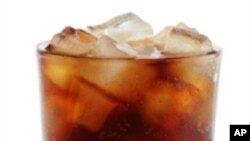Sugary beverages can lead to increased “deep” belly fat, a particular kind of fat that increases the chances of developing diabetes or heart disease, according to a new study.
Writing in its journal, Circulation, researchers from the American Heart Association showed there is a “direct correlation” between sugary drinks and visceral fat among middle-aged adults.
The results came from the Framingham Heart Stud that in 1948 began studying the cardiovascular health of the residents of Framingham, Massachusetts.
Visceral fat, also known as “deep” fat, surrounds the internal organs and affects how certain hormones function in the body. Particularly, it is thought to play a role in insulin resistance, which can lead to Type 2 diabetes and heart disease.
“There is evidence linking sugar-sweetened beverages with cardiovascular disease and Type 2 diabetes,” said Caroline Fox, lead study author and a former investigator with the Framingham Heart Study of the National Heart, Lung, and Blood Institute.
“Our message to consumers is to follow the current dietary guidelines and to be mindful of how much sugar-sweetened beverages they drink. To policy makers, this study adds another piece of evidence to the growing body of research suggesting sugar-sweetened beverages may be harmful to our health,” she said.
For the study, researchers looked at the drinking habits of 1,003 people, half men and half women who average 45 years old. The subjects were put into four categories, “non-drinkers; occasional drinkers [sugar-sweetened beverages once a month or less than once a week]; frequent drinkers [once a week or less than once a day]; and those who drank at least one sugar sweetened beverage daily.”
After six years and controlling for age, gender, physical activity and body mass index, the researchers found that belly fat increased by 658 centimeters cubed for non-drinkers; 649 cubic centimeters for occasional drinkers; 707 cubic centimeters for frequent drinkers; and 852 cubic centimeters for daily drinkers.
The American Heart Association says that sugary drinks are the “largest contributor of added sugar intake in the United States.”
The group recommends that women consume no more than 100 calories per day from sugary drinks, which can also include fruit juices with added sugar. Men should limit their intake to 150.
The American Beverage Association said in a statement that no one dietary factor causes obesity.
"Heart disease and other obesity-related diseases, such as diabetes, have been shown by science to be caused by a multitude of factors, not by a single beverage or food," the association said in its statement.





